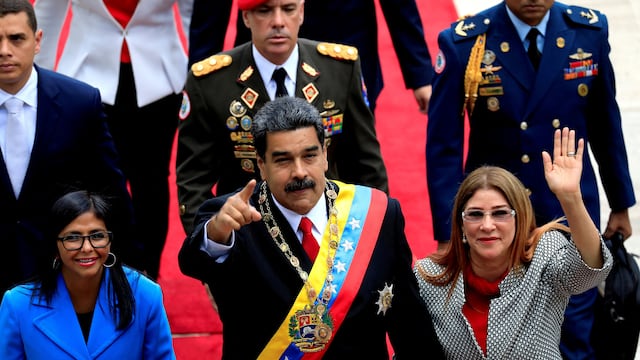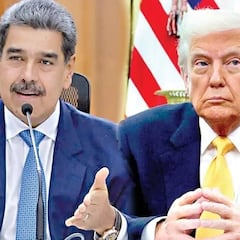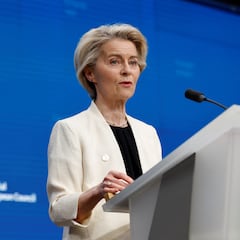Nicolás Maduro and his wife have been taken out of Venezuela after a military strike on the country ordered by Donald Trump.

How long was Nicolás Maduro president of Venezuela?
In the early hours of Saturday morning, Venezuela’s President Nicolas Maduro was taken out of the country along with his wife by U.S. troops.
How long was Nicolas Maduro president of Venezuela?
Nicolás Maduro had been in power for over twelve years. He assumed office on April 19, 2013, after the death of Hugo Chávez, who became his mentor while serving as vice president during Chávez’s administration. Maduro was re-elected in 2018 for a second presidential term. However, the 2024 re-election, like the one in 2018, was surrounded by controversy due to its lack of transparency, and it did not receive recognition from some countries and international organisations.
BREAKING: Trump illegally invades Venezuela and kidnaps President Nicolás Maduro in a horrifying violation of international law designed to distract from his Epstein scandal and enrich his Big Oil donors.
— Occupy Democrats (@OccupyDemocrats) January 3, 2026
The United States just made history in the worst way possible...
"The… pic.twitter.com/pk6Gihsm0q
Throughout a decade of power, Maduro’s government has been marked by a profound economic crisis, various political tensions, and international sanctions. Therefore, this Sunday’s elections were seen of utmost importance for the Venezuelan people, as it was the first time in a decade that an opposition candidate had a reasonable chance to end the dominance of chavismo in the country. It wasn’t to be.
Why did the U.S. attack Venezuela and detain Maduro?
Related stories
Nicolás Maduro was indicted in the United States for drug trafficking, corruption and other charges in 2020, which is when the U.S. State Department announced a $50 million reward for information leading to his arrest or conviction.
I am really failed to understand how USA certified that Nicolas Maduro was an illegitimate dictator and USA has the right to topple the govt in another country #Venezuela ??
— Praveen Kumar (@RigidDemocracy) January 3, 2026
How can USA arrest #Mudaro ?
Is the #USA doing the job of the United Nation?
Does the United States… pic.twitter.com/RkYI0wNfob
But, Trump’s objectives for attacking Venezuela are still unclear. Global leaders have voiced their concerns on Jan. 3, 2026 and the world is waiting to hear what Trump has to say in his Saturday press conference from Mar-A-Lago.


Complete your personal details to comment